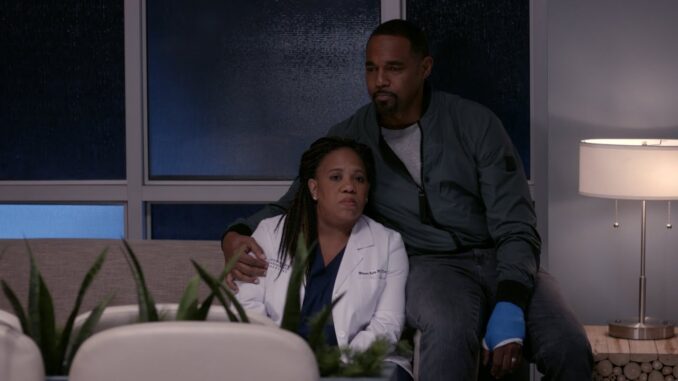
The silence in Bailey's small apartment was a living thing, heavy and suffocating. It hummed with the ghosts of ambitions shattered, dreams turned to dust. Her once-vibrant bakery, "The Crumbly Corner," was no more, a victim of an unforeseen economic downturn and a cruel twist of fate that had left her with nothing but a mountain of debt and the bitter taste of failure. She sat curled on the worn sofa, a phantom ache in her chest, the world outside her window a blur of indifferent motion. This was her darkest moment, a pit of despair so profound it felt like the very air had been sucked from her lungs. Hope, once a flickering candle, had been snuffed out entirely.
She had tried, in the beginning, to shoulder the burden alone, to be the stoic, independent woman she’d always prided herself on being. But the weight was crushing, threatening to splinter her into a thousand pieces. It was then, when her self-reliance had utterly failed her, that the first tendrils of light began to pierce the gloom, not from within herself, but from the steadfast presence of others.
The first was Chloe, her best friend since kindergarten. Chloe didn't arrive with platitudes or grand solutions. She arrived with a worn blanket, a carton of Bailey's favorite ice cream, and an unwavering, quiet presence. She didn't press for details Bailey wasn't ready to share; she simply sat, a warm anchor in Bailey's tempestuous sea of grief. Chloe’s strength wasn't in her words, but in her unwavering belief that Bailey was more than her circumstances. She brewed tea, folded laundry, and most importantly, she listened to the silence, acknowledging the pain without needing to fix it. One evening, after weeks of this silent vigil, Bailey finally broke down, sobbing out the shame, the fear, the utter emptiness. Chloe simply held her, a silent testament to enduring loyalty, whispering, "You are loved, Bailey. That's one thing they can't take from you." In that embrace, a fragile tendril of her own strength, born of Chloe's steady support, began to unfurl.
Then came Mr. Henderson, her elderly next-door neighbor. A man of few words and profound observation, he’d seen the lights in her apartment stay off, the usually bustling activity cease. He didn't knock on her door with pity. Instead, he started leaving small things on her porch: a perfectly ripe tomato from his garden, a freshly baked loaf of his wife’s bread, a flyer for a local art class he thought she might enjoy (a subtle nod to her forgotten hobby). One rainy afternoon, he found her struggling to fix a leaky faucet, her hands trembling. Without a word, he took the wrench from her, fixed the leak with practiced ease, and then, as he wiped his hands, cleared his throat. "Heard about The Crumbly Corner, Bailey," he said, his voice gruff but kind. "Terrible shame. But you know, my niece runs a small catering business. She's looking for someone with your knack for pastry. Just a few hours a week, maybe? No pressure." It wasn't charity; it was an invitation, a quiet validation of her skill, a gentle nudge back towards purpose. Mr. Henderson’s practical, unassuming belief in her capabilities, seeing past her current state of despair to her inherent worth, instilled a different kind of strength – the strength of possibility.
But perhaps the most potent catalyst came from Leo, a young man who had started as her apprentice at the bakery and had become almost like a younger brother. He appeared one afternoon, not with sympathy, but with a sketchbook full of ideas. "Bailey," he began, his eyes bright with an unshakeable faith, "I know the bakery’s gone, but your recipes, your vision… that's not gone. People miss your sourdough. They miss your croissants. What if we started small? A farmers' market stall? Online orders? Just us, for now." He didn't ask her to be a phoenix rising from the ashes; he asked her to be herself, to share her unique talent with the world again, even if on a much smaller scale. Leo's unwavering faith in her craft, his recognition of the value she offered, reignited a spark of her passion that she thought had died forever. He saw her not as a failure, but as a culinary artist temporarily displaced. His shared enthusiasm, his belief in her ability to rebuild, gave her the strength to take the first tentative steps, to sketch out new plans, to dream a new dream, not alone, but together.
In her darkest moment, Bailey discovered that strength was not a solitary wellspring, but a collective reservoir. It flowed from Chloe's silent, loving presence, from Mr. Henderson's practical wisdom and quiet belief, and from Leo's hopeful vision for a shared future. These were the anchors that held her when she felt adrift, the steady hands that pulled her from the depths. She hadn't found strength within herself in isolation; she had found it reflected in the eyes of those who refused to let her fall, who saw her worth even when she couldn't. It was in their steadfast standing by her that Bailey, slowly, painstakingly, began to find her way back to the light, not as the woman she was before, but as someone stronger, more resilient, and profoundly grateful for the unbreakable bonds that had saved her.